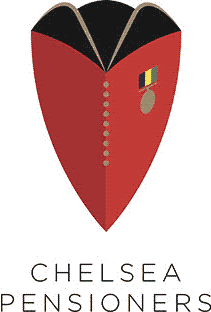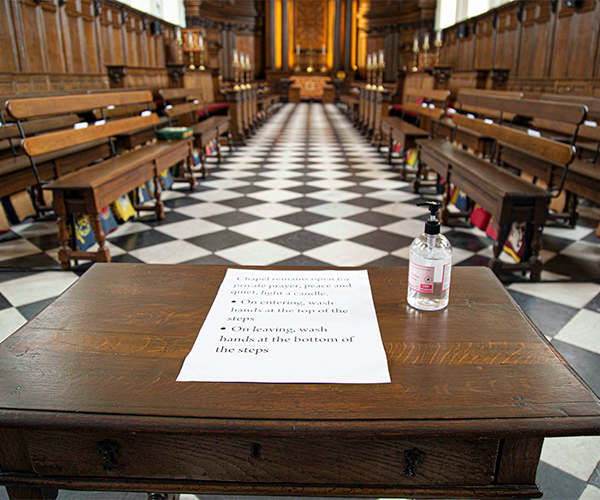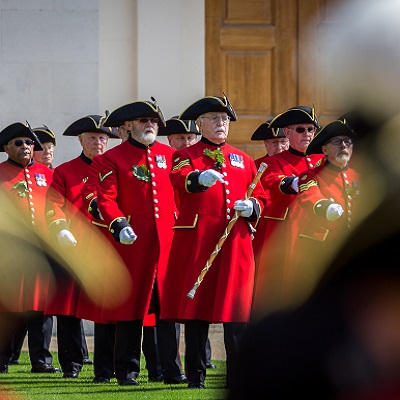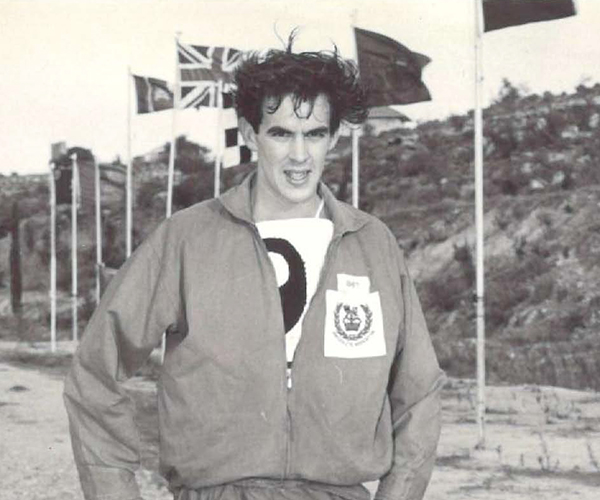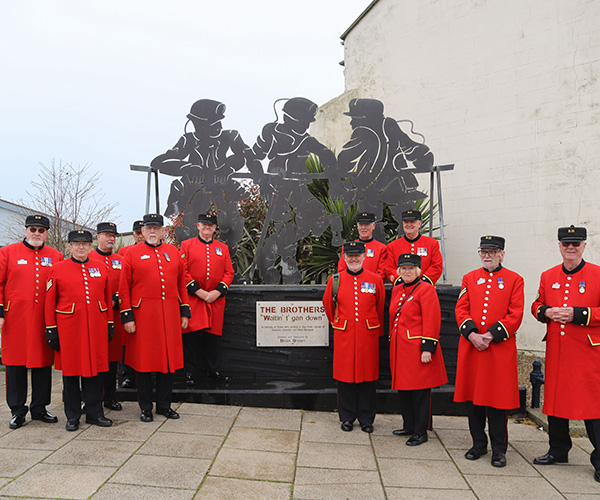The great indoors
17th April 2020
Chelsea Pensioner Ray Pearson – formerly an NCO instructor in the Royal Engineers and a journalist – is keeping himself busy during lockdown at the Royal Hospital Chelsea, despite a health scare.
When Ray Pearson experienced some symptoms that concerned him, he decided to go into voluntary isolation:
I didn’t feel too bad, but I didn’t feel too well either, so I explained the situation and then went into voluntary isolation. Every day, they checked what my symptoms were and whether they were getting better or worse. After seven days, I came out of isolation.
Making the most of isolation
While he was confined to his berth, Ray – who is a keen member of the Royal Hospital’s pottery club – structured his time and used it productively:
I turned a corner of my berth into a pottery studio. Every morning I did pottery. In the afternoon I got on the internet and worked on my book A Century of Memories, based on my father’s life, and in the evening, I’d watch a film on Netflix.
Pottery and Picnics
Once Ray was given the all clear, he was back working in pottery club each morning with several other Pensioners, including his good friend John. The club has been relocated during the isolation period and the Pensioners who are pursuing their projects there respect social distancing.
I’ve been making some owl ‘whatevers’, I’ve just got the first few out of the kiln. They’re in their full resplendent colours – reds, greens, blues and pinks. I always make my family something for Christmas, whether they like it or not! The first thing I made when I came to the Royal Hospital was an iris, because my wife’s name was Iris.
In the afternoons, Ray likes to get out and enjoy some sunshine in Ranelagh Gardens:
My mate John and myself take our mobility scooters and have high tea in Ranelagh Gardens – at a social distance, of course.
“You have to go with it – it’s for the good of all”
Although he’s keeping himself occupied and fully accepts the reason for the restrictions, Ray misses being able to get out and about:
I used to go out on my mobility scooter to the shops and up to Hyde Park. We can’t do that at the moment, but there’s a tuck shop where you can put your order in and get stuff delivered. I usually make my own bread, but these things have been curtailed now.
Whatever happens, you have to go with it. If you can’t do it anymore, you can’t do it– it’s for the good of all. The Pensioners are accepting it. Observing social distancing is very strong here. Mealtimes are totally different – different dining areas, separate tables, sitting further apart.
“You know you’re going to come through it”
Ray says that although nothing in his own life prepared him for the pandemic, he’s learned lessons from history and Christianity:
I’ve been to the passion play Oberammergau three times. It goes back to the time of the Black Death when they practised just what we’re practising now. They closed down a whole village in a little valley in southern Germany to stop people going in and out. Then someone went outside and brought it back and 80 people died. The villagers prayed to God and said ‘If you stop this pestilence, we will perform a passion play once every 10 years’ – and they have done now since 1600.
And if you go back to the Bible, Aaron was told by the Lord that if people have leprosy or things of that nature they should not be shunned but put to one side, so they don’t infect anybody else. The idea of lockdown is nothing new in that sense. It’s helped me because you know you’re going to come through, as they’ve come through so many other times.
"The banter here continues"
According to Ray, the Pensioners are coping well with the situation:
When you’re young, you think you’re going to live forever and look at the life ahead of you. When you get to middle age, you’re not sure where you’re going. When you’re older, your mentality changes, more to acceptance of what’s going to happen.
The virus hasn’t killed the banter off. We take the mickey out of each other, have a joke, things of that nature. The banter here is very strong – totally different to any care home. That’s what makes the Royal Hospital in a way, the shared background and the humour. We understand each other.
“it’s better to be in the Royal Hospital”
Although he’s coping well with isolation, Ray is looking forward to resuming normal life:
I want to go on a silversmithing course and John and I are going to go out much more on our mobility scooters, to places like the Science Museum – we’ve got plans!
This is not the end of the world. It’s going to be over and I think it will make us appreciate things more. The enjoyment comes when you’ve had the bad side, something you don’t like, otherwise you don’t have anything for comparison.
In the meantime, Ray says the Royal Hospital’s response to the virus has been very good and he feels fortunate to be there:
I think we’re doing well here, compared to the outside world. They’re doing as much as they possibly can in the circumstances. They’re looking after our wellbeing too. I’ve never seen so many Pensioners in Ranelagh Gardens, all walking around observing social distancing. You’ve got to look on the bright side and think of the alternative. For most people here that would be on their own. It’s better to be in the Royal Hospital.
